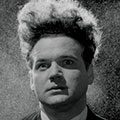I happened to download this Planet Money episode on class action lawsuits the week we were choosing topics for PB4, so I listened to it with interest hoping to find formal elements we could borrow for use in our own essay. It turned out that Kat and Emily really liked the format too, so we decided that a Hack/Planet Money style podcast would be the perfect format for our PB4 audio essay.
Specifically, the elements we will be using in our audio essay include vox pops, a host providing context and driving the narrative, interviews with expert speakers, and sound effects/musical cues. With such a short production schedule and limited length our essay will necessarily be less in-depth than this Planet Money episode, but I think it’s still a handy model to try to emulate in limited form.
For the video component, Kat brought to the table a fantastic series of essays by PBS called Idea Channel, which “examines the connections between pop culture, technology and art”. There are dozens and dozens of such videos in the Idea Channel stable, and although they have a very particular style and personality (which we won’t be recreating exactly), some of the broader conceptual ideas on which Idea Channel is based will provide excellent reference for our own work.
